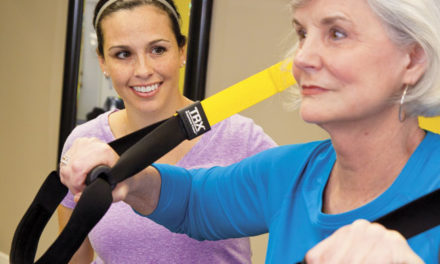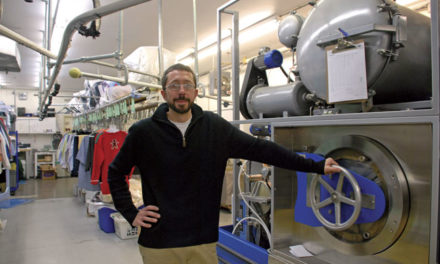
BY JEREMY SHERE
Most people, whether they’re hardcore gamers or just looking to kill time, play video games for one reason: They’re fun. Which is why the vast majority of lab-born and -tested “educational” games don’t catch on. Rare is the video game that’s both good for you and impossible to put down.
Yet that’s precisely the goal of Wellnuts, a new, locally based mobile-app and game-development company.
“Most developers making educational games do it backwards: first doing the research and testing the game in the lab and then putting it on the market,” says programmer and game developer Adam McMahon, the company’s vice president. “Our strategy is to create really good games and put them out there for people to play, and then study them.”
Officially launched this past May, Wellnuts
currently has three games on the market: Nutrition Wars, a simple shooting game pitting strawberries, broccoli, and other healthy foods against junk-food bad guys; Well Words, a “positive wellness” word scramble game; and Break Free, which “explores the concepts of overcoming temptations and addictions.” Several other games are in the works.
McMahon has long been interested in wellness, but his interest deepened and became much more personal when he was recently diagnosed with type 1 diabetes. “It was quite a shock,” says McMahon, who found out he had the disease just months after moving to Bloomington from Miami. It was in Florida where he first began developing Wellnuts with University of Miami education and human development researcher Isaac Prilleltensky. “[Being diagnosed] made the very things we were thinking about—eating right, exercising, having a good psychological perspective—suddenly very real for me and has given me more insight into why wellness is so important and how video games can help spread that message.”
McMahon is well aware of the irony of using video games to encourage people to be more active and live healthier lifestyles. After all, gaming is often cited as a primary culprit in keeping kids indoors and sedentary instead of playing outside. “You have to meet people where they are,” McMahon says. “It would be great if people didn’t spend so much time on mobile devices, but they do, so we’re trying to provide gaming options that help educate people about making healthful choices.”







